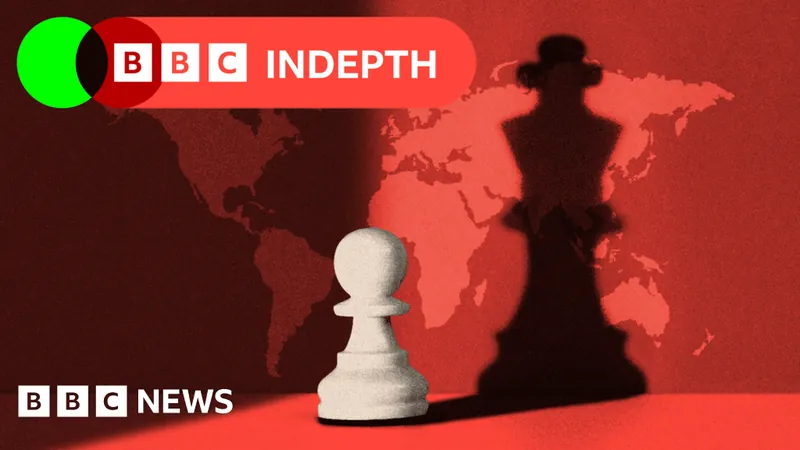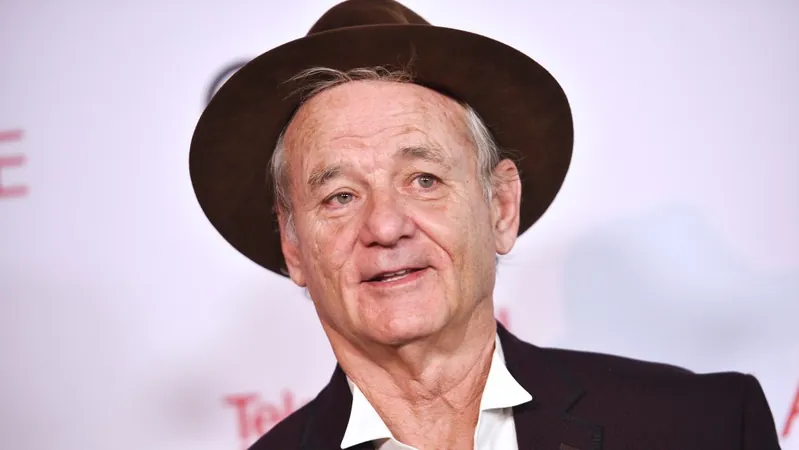
How Trump Exploded the Global Balance of Power: The Aftermath for Europe
2025-03-26
Author: Wai
Donald Trump has radically reshaped the international landscape, leaving European leaders scrambling to reassess their security and diplomatic strategies.
Experts are now claiming that this upheaval represents the gravest crisis for Western security since World War II—one that promises lasting consequences. As one analyst notably remarked, "Trumpism will outlast his presidency." The critical question now is: which nations will rise to fill the leadership void as the United States steps back from its traditional role?
A Historical Perspective: The Shift in Power Dynamics
The transformation in global leadership can be traced back to a pivotal moment in February 1947 when the United Kingdom signaled to the United States that it could no longer support Greek government forces during a Communist insurgency. Recognizing the potential for Soviet expansion into Greece—and subsequently Turkey—the U.S. quickly filled the vacuum left by Britain, initiating what became known as the Truman Doctrine.
This doctrine established defending democracy abroad as vital to U.S. national interests, paving the way for crucial initiatives like the Marshall Plan, aimed at European economic recovery, and the formation of NATO, which sought to protect democracies from Soviet influences. This marked the dawn of the U.S. as the leader of the free world, correlating with an era where American culture, economy, and military might dominated global discourse.
The Unraveling of Post-1945 Norms
Fast forward to the current era, where Trump stands as the first U.S. president since WWII to fundamentally question the post-war international order. His critiques, steeped in decades of skepticism about international alliances, have raised alarm bells. During his presidency, Trump has invigorated nationalist sentiments by accusing allies of “free riding” on U.S. protection, fostering a climate that many see as heralding the end of an era.
Recent revelations from leaked communications within his administration showed frustration over perceived European reliance on American military support, with officials openly voicing disdain for what they viewed as European freeloading. Trump's controversial outreach to Russia further complicated the situation; his rhetoric suggested a weakening of NATO, leading to fears regarding the security commitments collective defense offers to member states.
A Fragile Future for NATO
The central tenet of NATO—Article 5, which states that an attack on one member is an attack on all—now hangs in the balance, with former defense officials expressing doubts about its viability. Public sentiment in several historically pro-American nations is shifting, with polling suggesting a significant loss of trust in the U.S. as a reliable ally.
Experts predict irreparable damage to NATO's cohesion, with European leaders realizing that they may need to take their defense into their own hands. While the previous U.S. administrations had urged an increase in European defense spending, Trump’s outright refusal to guarantee protection unless allies share the financial burden has unleashed a new urgency among European nations.
The Emergence of a New Order?
As European leaders struggle to respond to this new reality, conversations around the "Europeanization" of defense are gaining traction. Calls for developing an independent European military-industrial complex capable of sustaining its own defense capabilities are more prominent than ever.
However, the political will to effectuate this change remains fragmented, with Eastern European countries prioritizing security against Russia while their Western counterparts grapple with different priorities. The looming question is whether Europe can unify under a common defense strategy before being forced to confront the dual threats of Russian aggression and diminished American support.
The Path Forward: Reconstructing Europe's Security Framework
The transition to a Europe more self-reliant in terms of defense poses significant challenges in the face of historical dependency on U.S. military might. European nations now face mounting pressures to invest in their armies and streamline recruiting efforts; otherwise, they risk opening themselves up to external aggression.
Historian Timothy Garton Ash calls for the establishment of "strategic enablers," such as satellite capabilities and advanced air defenses, to ensure that Europe is not wholly reliant on U.S. resources. This transition, arguably, may take several years—raising concerns about immediate threats from nations like Russia in the interim.
As Europe takes strides toward re-establishing a balanced defense posture and navigating a complex geopolitical landscape, the absence of assured U.S. support places an increasing burden on its leaders. Unity, increased defense funding, and the development of a coherent response to external pressures will be paramount in the ongoing struggle to maintain peace and stability in an increasingly fragmented world order.
Will Europe manage to forge this new path before it’s too late? Only time will tell if the nations of Europe can unite to safeguard their future in this uncertain geopolitical climate.



 Brasil (PT)
Brasil (PT)
 Canada (EN)
Canada (EN)
 Chile (ES)
Chile (ES)
 Česko (CS)
Česko (CS)
 대한민국 (KO)
대한민국 (KO)
 España (ES)
España (ES)
 France (FR)
France (FR)
 Hong Kong (EN)
Hong Kong (EN)
 Italia (IT)
Italia (IT)
 日本 (JA)
日本 (JA)
 Magyarország (HU)
Magyarország (HU)
 Norge (NO)
Norge (NO)
 Polska (PL)
Polska (PL)
 Schweiz (DE)
Schweiz (DE)
 Singapore (EN)
Singapore (EN)
 Sverige (SV)
Sverige (SV)
 Suomi (FI)
Suomi (FI)
 Türkiye (TR)
Türkiye (TR)
 الإمارات العربية المتحدة (AR)
الإمارات العربية المتحدة (AR)